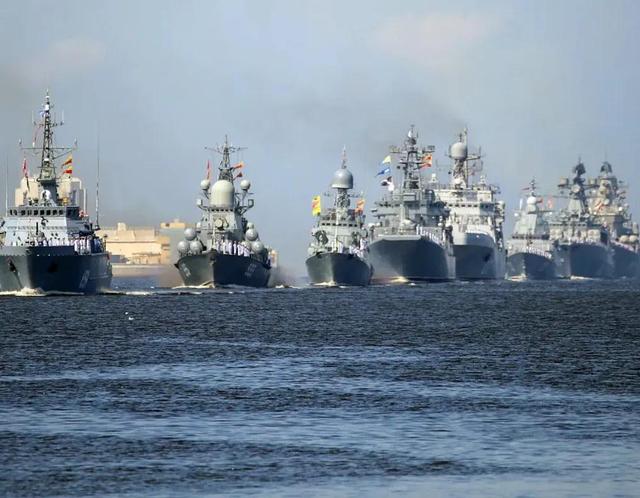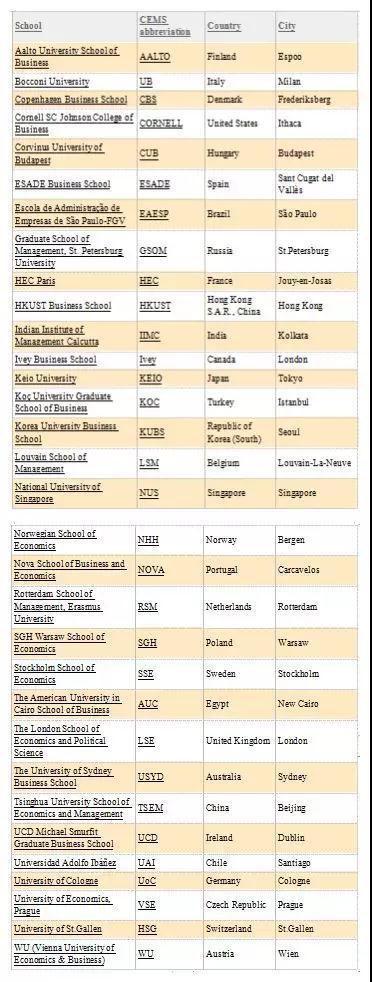「龙腾网」为什么寒冷地带的国家比温暖地带的国家更发达?
正文翻译

Why are colder countries more developed than the warmer ones?
为什么寒冷地带的国家比温暖地带的国家更发达?
评论翻译
Balaji Viswanathan
Other than the 19-20th century CE, cold weather regions were not really ahead of the economies of warmer regions. Historically, the civilization was centered around warm, tropics & subtropics. The first 5 civilizations - Sumer, Nile valley, Indus Valley, Yellow river valley, Norte Chico - were all in subtropics. The ones that followed - in Greece, Persia, Rome were in the same zone too. [Subtropics often were better than tropics because the latter was often next to dense rainforests with wildlife & epidemic dangers.] Still the warmer regions performed better throughout history.
Colonialism changed this dynamic for the first time. I will explain this how. The cold weather regions have very low population density as not many people preferred cold winters. This allowed the farmers to have much larger lands and more potential mines & mineral resources. Until the modern era, these were hard to tap though.
When industrial revolution came, the technology drastically helped those in cold climates. Mechanised farming - tractors and other machines - allowed industrial scale farming over those lands. This allowed the farmers to get rich because they had now huge lands that could be fully tapped. Factories also could now get minerals resources and infrastructure as large parts of their countries were sparsely occupied. In contrast, industrial revolution could not do much to densely populated tropics that already had high farming productivity - but shared by a large number of farmers. Tropics were too densely populated - meaning lesser resources & lesser room or infrastructure.
Other aspect colonialism did was to open up huge markets. England had a small domestic market - population was small. But, through its colonies it got a huge market for its textile mills and industries. In earlier times there was not much international trade and thus those in sparsely populated regions could not benefit from their innovations.
In 21st century CE, we are entering a post-industrial era and the pendulum might be shifting again. Mines and lands are not as important as they were in say 20th century. It is about the number of minds networked. In this, the subtropics/tropics such as California, Singapore, Shanghai or Bangalore are getting back in the game. The size of the domestic market matters big once again - as Californian startups could attest and density helps in various other ways too for an information economy.
除了公元19-20世纪之外,寒冷天气地区的经济并没有真正领先于温暖地区的经济。从历史上看,文明是以温暖、热带和亚热带为中心的。前5个文明--苏美尔、尼罗河流域、印度河流域、黄河流域、卡劳尔文明--都是在亚热带地区。随后的文明--希腊、波斯、罗马也都在同一区域。[亚热带往往比热带好,因为后者往往是在有野生动物和流行病危险的茂密雨林旁边] 在整个历史上,较温暖的地区的表现更好。
殖民主义第一次改变了这种动态。我将解释这一点。寒冷天气地区的人口密度很低,因为没有多少人喜欢寒冷的冬天。这使得农民可以拥有更大块的土地和更多的潜在矿山和矿产资源。这些资源直到现代都很难被开发。
当工业革命到来时,技术进步极大地帮助了寒冷气候下的人们。机械化耕作--拖拉机和其他机器--允许在这些土地上进行工业规模的耕作。这让当地农民发了财,因为他们现在有了可以充分开发的大片土地。工厂现在也可以获得矿物资源和基础设施,因为他们国家的大部分地区都人烟稀少。相比之下,工业革命对人口稠密的热带地区没有什么作用,这些地区已经有很高的农业生产力,但被大量的农民所分享。热带地区人口过于稠密,意味着资源和空间或基础设施较少。
殖民主义的另一个作用是开辟了巨大的市场。英国的国内市场很小--人口很少。但是,通过其殖民地,它的纺织厂和工业获得了巨大的市场。在早期,没有太多的国际贸易,因此那些人口稀少地区的人无法从他们的创新中受益。
在公元21世纪,我们正在进入一个后工业化时代,钟摆可能会再次转移。矿山和土地并不像20世纪时那么重要了。现在重要的是网络思维的数量。在这一点上,加利福尼亚、新加坡、上海或班加罗尔等亚热带/热带地区正在重新参与游戏。国内市场的规模再次变得非常重要--加利福尼亚的初创企业可以证明这一点,人口密度在其他方面也有助于信息经济的发展。
Alexis Eggermont
This isn’t correct. “The cold weather regions have very low population density“. You write this implying it was the main factor in early development. But actually the countries that developed first were the most densely populated ones: the UK, Belgium and the Netherlands, not Russia, Spain or Sweden. Belgium and the Netherlands have population densities that are still on the level of India (Netherlands higher than India, Belgium slightly lower), despite India’s huge population boom in the 20th century.
Besides, it’s really not progress in agriculture that was the hallmark of the industrial revolution, but the mechanization of industrial production.
不对。"寒冷地区的人口密度非常低"。你这样写,暗示这是早期发展的主要因素。但实际上最先发展的国家是人口密度最高的国家:英国、比利时和荷兰,而不是俄罗斯、西班牙或瑞典。比利时和荷兰的人口密度仍处于印度的水平(荷兰高于印度,比利时略低),尽管印度在20世纪有着巨大的人口增长。
此外,工业革命的标志真的不是农业的进步,而是工业生产的机械化。
Alexis Rodriguez
Britain wasn’t landlocked like Russia, its climate was better, and its harder to invade Britain than Russia (imagine all the damage done to Russia in World War 1, World War 2, Napoleon, and the sanctions later on.
英国不像俄罗斯那样是内陆国,它的气候更好,而且它比俄罗斯更难入侵。想象一下在第一次世界大战、第二次世界大战、拿破仑以及后来的制裁中对俄罗斯造成的所有伤害。
Karthik Deshpande
Balaji - I would like to disagree on the last paragraph. Getting back in game? game of what ? You seem to conveniently forget the fact that technology is going to increase the gap between have's and have not's. Technology in the future is going to be more of a net job destroyer than job creator and that is going to be huge problem with countries of huge population.Countries like India and China will have gigantic task of providing jobs of millions of graduates. So whatever boom we are seeing in these countries happening because of cheap labour will not continue till perpetuity. And land is not important? how are we going to feed the population of these countries? where can we get water and all resources needed for an economy to produce products?It is only matter of time where countries with land and technology and less population (like US, Canada)are going to be way more strong economically when the 4th industrial revolution (Robotic revolution) reaches its peak.
我不同意最后一段的说法。钟摆再次转移?你似乎很容易忘记这样一个事实,即技术将扩大有的和无的差距。未来的技术将更多地成为净就业的破坏者,而不是就业的创造者,这将是人口众多的国家要面临的巨大问题。因此,我们在这些国家看到的因廉价劳动力而出现的任何繁荣都不会持续到永久。当第四次工业革命(机器人革命)达到顶峰时,拥有土地、技术和较少人口的国家(如美国、加拿大)将在经济上更为强大,这只是时间问题。
Sam Rao
Yes, who was the big-shot IIT guy just a few days ago (was it Nilekani or Raghuram Rajan,? doesn’t matter though) who said ….don’t expect much from the “Make in India” manufacturing push…focus on the service industry instead…
Service industry? You mean shopping malls full of imported products (Nike, Adidas, Calvin Klein, Giorgio Armani, Gucci etc.) Are there, will there be so many ‘High-end” consumers to afford to continually keep on buying these products…and if so…what happens to the millions of mom&pop corner stores that exist in almost every street corner of small-town (& big city) India???
Just yesterday I arrived back from “Cutting-edge” Mumbai & the first page of the Times of india property Section said it all….”Save the Mall” “High Prices and an economic slowdown are impacting the fate of the much-beloved, family-friendlymalls”…..!!!
是的,就在几天前,一个经济界的大人物(是尼勒卡尼还是拉格鲁姆拉詹?不重要了),他说....不要对"印度制造"的推动抱有太大期望......而是要专注于服务业。
服务业?你的意思是满是进口产品(耐克、阿迪达斯、卡尔文-克莱恩、乔治-阿玛尼、古驰等)的购物中心,是否会有那么多"高端"消费者负担得起持续购买这些产品......如果是这样......那么存在于印度小镇(和大城市)几乎每个街角的数百万家小便利店如何解释?
就在昨天,我从"尖端"的孟买回来,《印度时报》财经板块的第一页说了一切.... "拯救购物中心"、"高价格和经济放缓正在影响备受喜爱的、适合家庭的购物中心的命运".....!!
Karthik Deshpande
I am not sure how your comment relate to my comment. I am not debating whether manufacturing or service route is best for India. All I meant was having right amount of resources will be significant factor going ahead.
我不确定你的评论与我的评论有什么关系。我不是在争论制造业还是服务业路线对印度来说是最好的。我的意思是,拥有适当数量的资源将是未来的重要因素。
Texasoilfields
You say “when the industrial revolution came” like it was a natural phenomena or something, and not a product of the minds, culture and innovation of one of those cold countries, Great Britain. Why did a cold country gift humanity the industrial revolution? Your answer fails to tackle this important question . . .
你说"当工业革命到来时",好像它是一种自然现象或什么,而不是那些寒冷国家之一英国的思想、文化和创新的产物。为什么一个寒冷的国家会给人类带来工业革命?你的回答没有解决这个重要的问题......
原创翻译:龙腾网 http://www.ltaaa.cn 转载请注明出处
Balaji Viswanathan
They got the gift by colonising the largest economy by GDP of that time. The colonisation could cripple India’s textile industry — the world’s largest of that time — allowing English industrial revolution to happen.
这是他们通过对当时国内生产总值最大的经济体(印度)进行殖民得到的礼物。殖民化可以削弱印度的纺织业--当时世界上最大的纺织业--使英国工业革命得以发生。
Charlie Max
Thats not true the invention of the steam engine was due to the intelligence of one or two people who had a eureka moment. Things do not magically invent themselves because of external forces.
并非如此。蒸汽机的发明是由于一两个人的聪明才智,他们有一个灵光乍现的时刻。事物不会因为外力而神奇地发明自己。
Revati Deshpande
So the country with low population and abundant resources wins!
No matter how hard we try to convince ourselves, the word 'largest' in 'the world's largest democracy' isn't something to be really proud of.
所以说人口少、资源丰富的国家获胜!
无论我们如何努力说服自己,"世界上最大的民主国家"中的"最大"一词并不是真正值得骄傲的事情。






















评论